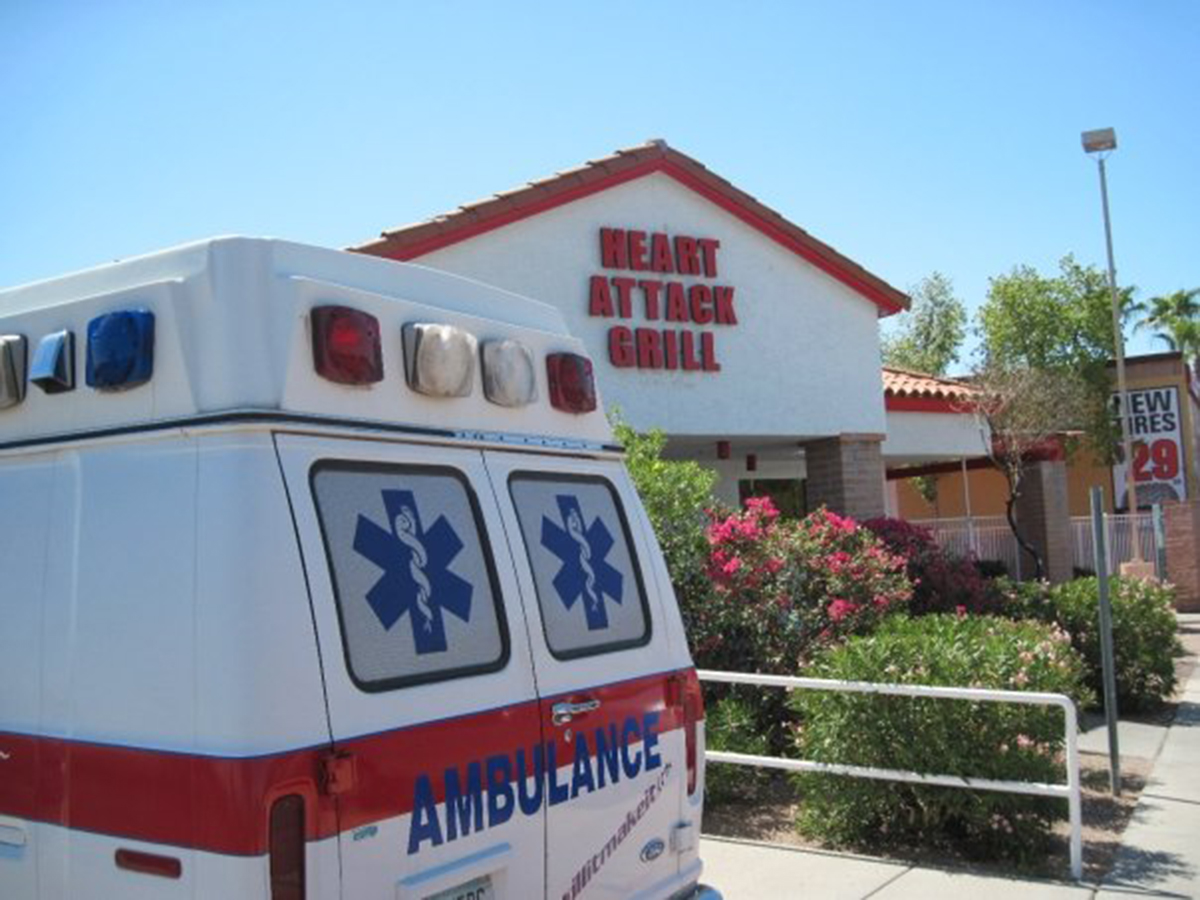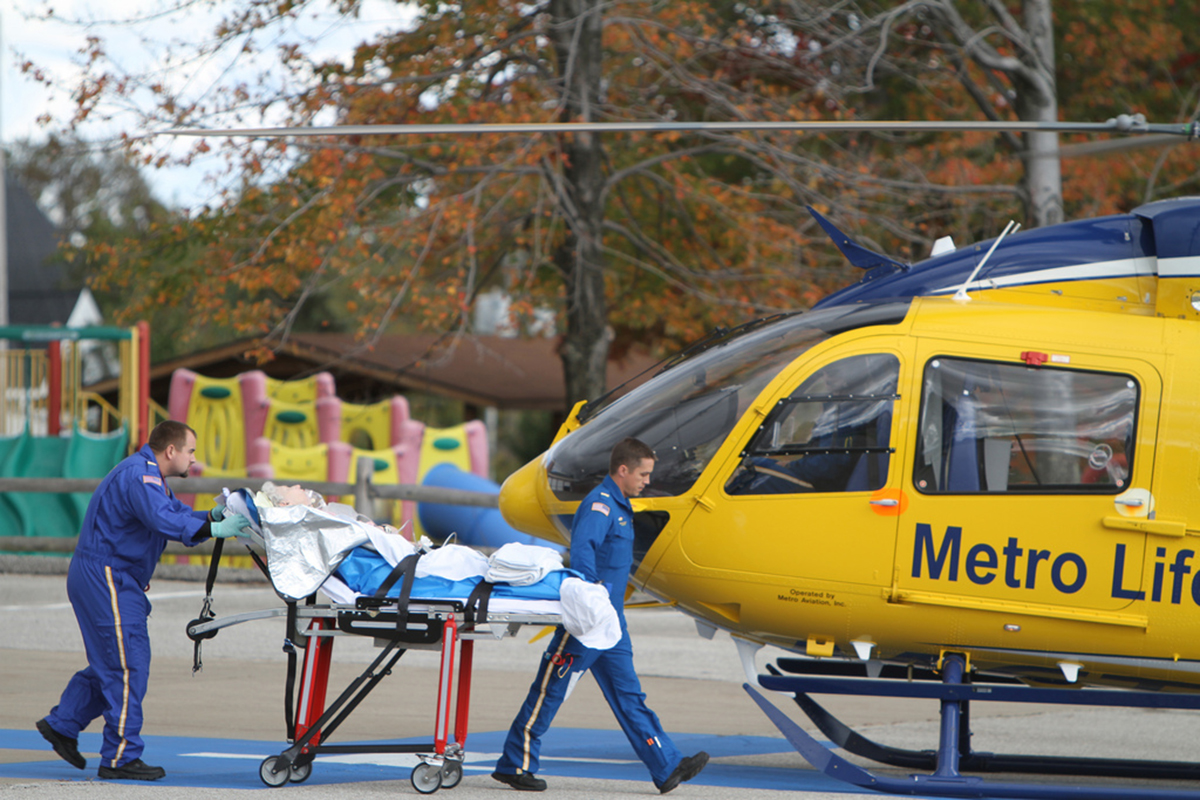A heart attack used to be considered a catastrophic event that you just weren't likely to survive.
As recently as 1950, almost the only thing a doctor could do for you after you had a heart attack was to give you what was politely called a water pill — meaning a diuretic, such as furosemide (Lasix). Because the diuretic caused the kidneys to remove both fluid and essential electrolytes such as potassium, the inevitable result was fatigue, and often severe fatigue. Heart attack patients had to spend much of their time in bed. Simply not getting enough sun led to vitamin-D deficiency diseases such as rickets and osteoporosis. People who survived heart attacks (and about 75 percent didn't) usually had just a year or two left to live, falling victim to a second heart attack if they survived the first. [1]

On the other hand, treating a heart attack was not terribly expensive. Going through my grandmother's trunk after she died, my cousins and I found the bill for four days in the hospital after her heart attack in 1948. It was for $47.25. She lived far longer than most, dying of a second heart attack in 1971.
How Many People Survive Their First Heart Attack?
Predictors Of Sudden Death If You Have A Heart Attack
- African-Americans are more likely to die of their first heart attacks than people of other races. However,
African-Americans are less likely to suffer from coronary artery disease. - People who are obese but not morbidly obese are more likely to die after their first heart attack, but so are people who are thin but not extremely thin.
- High blood pressure is a better predictor of death than how "clogged" your arteries are on a scan.
- A fast heart rate predicts death, especially when it is coupled with low blood pressure.
- Certain abnormalities on an EKG are predictive of sudden death, but not of stable coronary artery disease.
Who Survives Multiple Heart Attacks?

- You have your heart attack on a weekday between 8 am and 5 pm, when senior staff are likely to be available at the emergency room and in the hospital. Death rates go up when patients arrive just before shift changes. [5]
- You don't go to a teaching hospital in July, when new residents are just starting their training. [6]
- You are younger rather than older. About age 60 is usually a dividing line for survival rates. [7]
- You don't have diabetes (especially with an HbA1C over 10 percent), or if you have either type 1 or type 2 diabetes, you use insulin. Insulin helps the heart muscle use oxygen more effectively after a heart attack. [8]
- You take at least a children's aspirin every day. On average, people who take Aspirin have about a 14 percent lower risk of a heart attack. [9]
- You are a man. Women are less likely than men to have heart attacks, but more likely to die of them if they do, something that is in large part caused by the fact that their symptoms are often less specific, and more likely to falsely be attributed to anxiety. [10]
- You eat a diet with more fiber. In one study reported in the British journal BMJ, first-time heart attack survivors who ate more fiber were up to 44 percent more likely not to have a second heart attack. "More" fiber is just six servings of fruit, whole grains, or legumes daily. Whole grain and legume fiber were slightly more beneficial than fruit fiber. [11]
- You don't smoke. Non-smokers are more likely to survive first heart attacks. [12]
- You have an ejection fraction of at least 40 percent after your first heart attack. The ejection fraction is measured during a stress test. [13]
- You have fewer "clogs" (atherosclerotic lesions) rather than more, ideally two or fewer.
- You don't have kidney disease, and your creatinine levels are under 2.5 mg/dl.
- You have been stable for 60 days or more.
Seeking treatment as early as possible if you have symptoms of a heart attack — including shortness of breath, feelings of weakness or fainting, pain in the jaw, neck, or back, and unexplained nausea and fatigue, as well as the chest pain people immediately think of — will give you a better fighting chance of surviving as well, of course.
- Photo courtesy of marysuephotoeth via Flickr: www.flickr.com/photos/marysuephotoeth/4309686730
- Photo courtesy of Dana Beveridge via Flickr: www.flickr.com/photos/scissorfighter/5170974002

